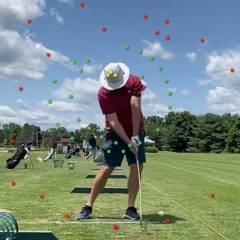IGNORED
65/20/15 Practice Ratios: Where to Devote Your Practice Time
-
Topics Being Discussed Right Now on The Sand Trap
-
- 0 replies
- 41 views
-
"5 Minutes Daily" Practice Challenge 1 2 3 4 1038
By iacas, in Instruction and Playing Tips
- 5 minutes daily
- dedication
- (and 6 more)
- 18,666 replies
- 1,939,474 views
-
- 43 replies
- 79,625 views
-
- 0 replies
- 42 views
-
- 2,577 replies
- 365,232 views
-








Recommended Posts
Create an account or sign in to comment
You need to be a member in order to leave a comment
Create an account
Sign up for a new account in our community. It's easy!
Register a new accountSign in
Already have an account? Sign in here.
Sign In Now